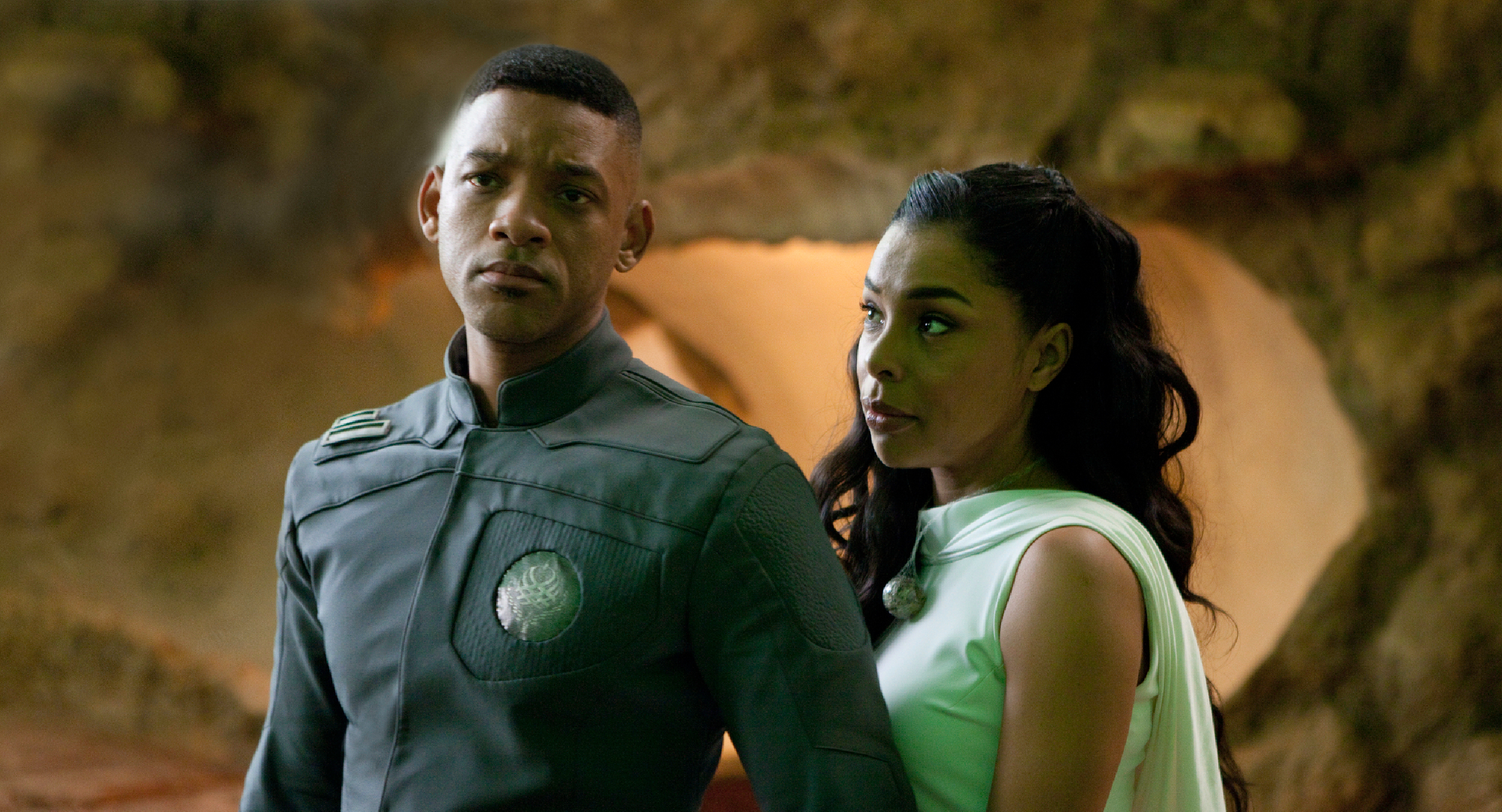After Earth – Film Review
Published February 29, 2024

In the landscape of science fiction, where the vast expanse of space and the untold possibilities of futuristic adventures captivate audiences, After Earth was a film that promised much but delivered astonishingly little. Directed by M. Night Shyamalan and starring Will Smith alongside his son, Jaden Smith, this 2013 movie was billed as a thrilling survival story set on a post-apocalyptic Earth. Unfortunately, After Earth falls drastically short of its potential, emerging as a painfully lackluster addition to the sci-fi genre.
The film’s premise is initially intriguing. Earth has become uninhabitable for humans, who have since colonized a new planet. A thousand years after the exodus, a father and son, Cypher (Will Smith) and Kitai Raige (Jaden Smith), crash land on the now alien and dangerous Earth. With Cypher injured, Kitai must journey alone to retrieve their rescue beacon. The set-up promises a blend of action, survival drama, and father-son bonding. Yet, despite the potentially rich narrative soil, After Earth manages to cultivate very little in the way of compelling storytelling or emotional depth.
One of the film’s most glaring issues is its script. The dialogue is often stilted, struggling to evoke any genuine emotion or create meaningful character development. It fails to provide the characters with the complexity or relatability that might engage the audience. Furthermore, the plot is riddled with inconsistencies and logic gaps that detract from the story’s believability. For a movie that attempts to root its appeal in the survival aspect, it’s critical that the audience buys into the world-building and the dangers the protagonists face. However, After Earth under-delivers, presenting challenges that feel contrived and solutions that come across as overly convenient.
The decision to focus almost exclusively on Kitai’s journey is a double-edged sword. While it ostensibly provides Jaden Smith with a platform to showcase his abilities, it also exposes his limitations as an actor. Throughout the film, Kitai is meant to display a wide range of emotions, from fear and desperation to determination and courage. Regrettably, Jaden’s performance often feels flat, struggling to convey the necessary depth of feeling. This issue is compounded by the lack of chemistry between Jaden and Will Smith. Given their real-life father-son relationship, one might expect a natural warmth and rapport. Surprisingly, their interactions feel stiff and rehearsed, significantly diminishing the movie’s emotional core.
The use of special effects and visual design in After Earth does little to salvage the viewing experience. While the film offers some visually striking moments, they are few and far between, overshadowed by a general sense of visual blandness. For a story set in a lush, dangerous, post-apocalyptic Earth, the movie fails to leverage its setting effectively. The landscape, which could have been a character in its own right, feels underdeveloped and underutilized.
Directorially, M. Night Shyamalan seems to struggle with finding the right balance. Known for his work in the thriller and supernatural genres, Shyamalan’s foray into sci-fi feels tentative. The pacing is uneven, with long stretches of tedium interrupted by bursts of action that, while competently choreographed, feel out of sync with the rest of the film. Moreover, the director’s signature twist, a hallmark of his most successful films, is notably absent, leaving the narrative feeling even more linear and predictable.
Thematically, After Earth attempts to tackle subjects such as fear, resilience, and the father-son relationship. Yet, it does so with such heavy-handedness and lack of nuance that any potential for meaningful exploration is lost. The film repeatedly beats the audience over the head with its central mantra, Fear is a choice, which, though potentially powerful, is rendered trite through overuse and simplistic treatment.
After Earth represents a significant misstep for all involved. It is a film that fails almost entirely to capture the imagination or provide a satisfying cinematic experience. The Smith duo, despite their proven talents in other endeavors, are unable to elevate the material, and Shyamalan’s direction lacks the subtlety and intrigue that characterize his best work. Visually unremarkable and narratively deficient, After Earth is a stark reminder that not all high-concept sci-fi ventures reach the stars. In the end, the most disappointing aspect of After Earth is not its failure to be great but its failure to be even remotely engaging. For a film that traverses the galaxies to tell its story, it is remarkably earthbound in its limitations, offering little in the way of excitement, insight, or entertainment.

